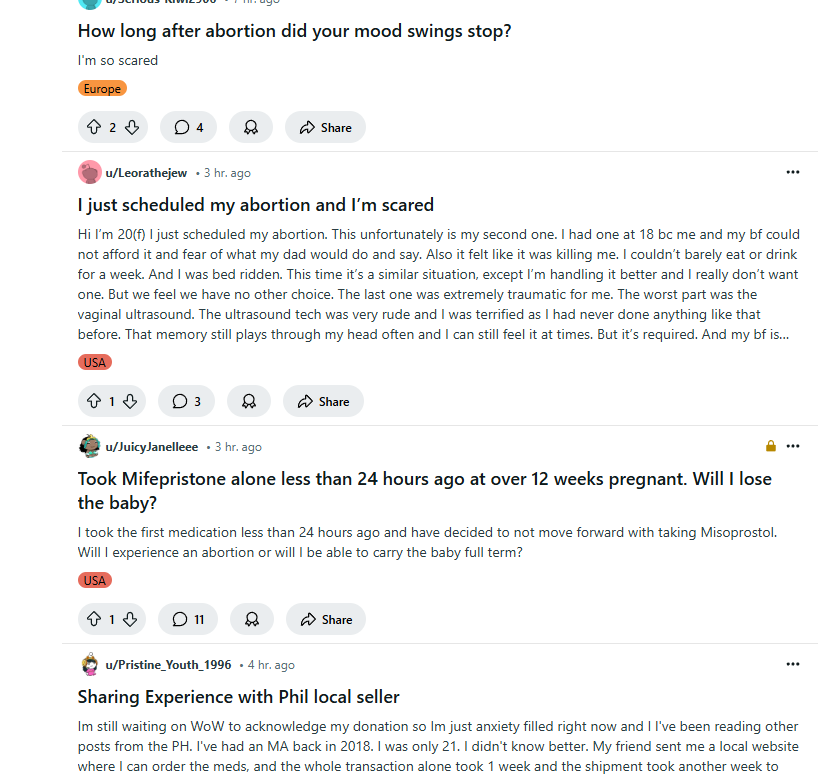
The new landscape of abortion access in America
For thousands, the 2022 Supreme Court decision overturning Roe v. Wade reshaped the very fabric of reproductive healthcare, throwing up new barriers that many never anticipated. And yes, it seems like its going to be harder out there.
In an eye-opening study, researchers delved into real-life experiences shared on a Reddit community dedicated to abortion support. These stories paint a vivid picture of the obstacles people face today, from long travel distances to fears of legal repercussions. Let’s break down what these barriers mean and how they impact lives, mental health, and autonomy.
The Structural Barriers: When Systems Work Against You
Structural barriers are systemic hurdles created by policies and healthcare infrastructure—or lack thereof. Following the Dobbs decision, many states enacted outright abortion bans or restrictive gestational limits, leaving individuals in “abortion deserts” where care was hundreds of miles away.
One poster from Texas shared, “I’m almost ten weeks pregnant, which is past the limit here. I have no idea where to go, and even the nearest states have weeks-long wait times.” Stories like this highlight the immense logistical burden created by these bans.
Beyond travel, costs pose another challenge. Many face exorbitant fees for abortion care and associated travel. For someone without stable income, this becomes an insurmountable obstacle. One woman wrote, “Planned Parenthood quoted me over $600. Add in travel, and it’s impossible for me.”
But there’s more. A lesser-discussed issue involves the credibility of online abortion services. With mail-order abortion pills becoming a lifeline for some, many posters expressed fears about whether these platforms were trustworthy. One wrote, “The pills I ordered look off. Could they be fake? I’m terrified.”
The Social Barriers: Stigma, Secrecy, and Isolation
Abortion stigma remains a heavy burden, especially in conservative regions. Posters frequently described feeling isolated, afraid to share their decision with partners, friends, or family. As one user from Alabama put it, “I know my family would disown me if they found out. I’ve never felt more alone.”
Even supportive relationships sometimes faltered under the weight of societal judgment. Intimate partner violence, lack of emotional support, and coercion added layers of complexity to many journeys. The shame imposed by communities often became a defining feature of the experience, leaving many to suffer in silence.
Emergent Challenges: Unseen Consequences of New Policies
The Dobbs ruling also revealed unforeseen consequences of these policies. One notable finding was the legal risks some feared, even when traveling to another state or ordering abortion medications. This climate of fear not only restricted access but deterred many from seeking medical follow-ups after self-managed abortions.
For others, long delays in obtaining care compounded their physical and emotional stress. Posters described grappling with prolonged pregnancy symptoms while waiting weeks for appointments or mail-order pills.
The Human Cost: Mental Health and Beyond
The study found that the barriers to abortion access left lasting scars on mental health. Anxiety, fear, and depression were recurring themes. One individual wrote, “I cried for hours every day, dreading what would come next.”
Delayed care and forced self-management also led to feelings of guilt and trauma, with many questioning their choices or feeling abandoned by the healthcare system. The emotional toll was often exacerbated by financial strain, lack of support, and hostile environments.
What This Means for Public Health
These findings underscore the urgent need for systemic solutions. Advocates must focus on reducing structural and social barriers alike, from funding abortion services to fighting stigma. Expanding access to accurate, trustworthy information about abortion options—including telehealth and self-managed care—is another critical step.
Moreover, the study highlights the need to prioritize mental health services for individuals navigating abortion in restrictive states. Addressing these multifaceted challenges requires an approach rooted in compassion, equity, and justice.
Take Action: A Shared Responsibility
The stories shared on r/abortion illuminate not just the challenges but also the resilience of individuals seeking care in a hostile environment. They remind us that abortion access is not just about policy; it’s about people—people grappling with decisions that profoundly impact their futures.
What would you do if faced with these barriers? How can we better support those navigating these challenges? Share your thoughts below and help spark a conversation about how we can collectively make a difference.




